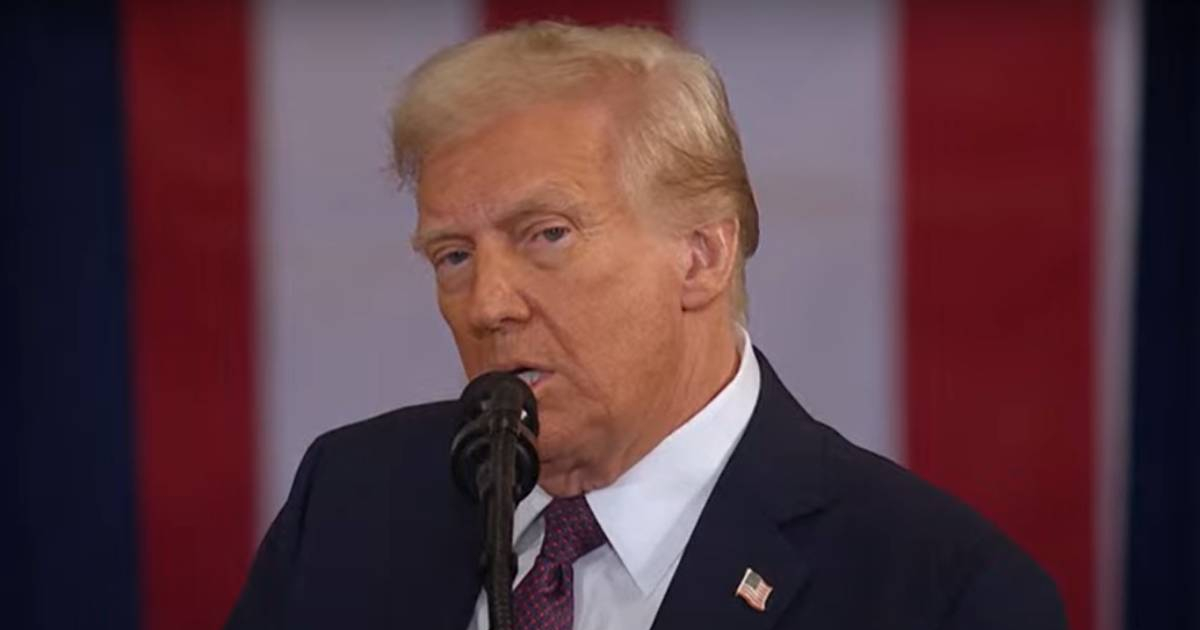
Related videos:
The newly inaugurated president of the United States, Donald Trump, began his second term with a series of executive orders aimed at fulfilling campaign promises, focusing on migration and national security.
This Monday, Trump signed at least 10 decrees that range from military deployment at the border with Mexico to the reinstatement of controversial immigration programs, the elimination of humanitarian parole, and the mobile application CBP One for applying for asylum.
Among the most notable measures is the declaration of National Emergency, which will allow the mobilization of personnel from the Department of Defense and the National Guard to strengthen border control in the southern part of the country.
Trump has ordered to prioritize closing the border with Mexico, with the intention of combating both irregular migration and drug trafficking.
Another of the approved orders will reinstate the Remain in Mexico program, officially known as the Migrant Protection Protocols. This policy, first implemented in 2019, requires asylum seekers to wait in Mexican territory while their cases are processed in the United States.
Additionally, Trump will designate drug trafficking cartels as terrorist organizations, including Mara Salvatrucha (MS-13) and the Tren de Aragua. This classification will enable the U.S. government to impose economic sanctions and take stricter legal actions against these groups.
Other executive orders include resuming the construction of the border wall and eliminating birthright citizenship for the children of undocumented immigrants, although the latter measure could face legal challenges for violating constitutional principles.
International reactions to the orders approved by Trump
Executive orders signal a vigorous start to his second term, eliciting both criticism and support both within and outside the United States. The Mexican government rejected what it considers a "unilateral measure" regarding the Stay in Mexico program.
The chancellor Juan Ramón de la Fuente stated that his country will not take on new responsibilities arising from this policy, although Mexico may consider specific agreements.
Trump had promised these radical measures since the beginning of his campaign, and on the day of his inauguration, he made it clear that his approach to immigration management would be more aggressive, fulfilling his promises.
The warnings that Trump had made
The future of immigration programs in the United States, such as humanitarian parole and the CBP One application, has created uncertainty in recent times during the Biden Administration.
The program humanitarian parole, which allowed Cubans to enter the United States, was already stalled, with only a small number of approved beneficiaries. Its definitive elimination reflects a complex landscape for Cuban migrants seeking to reach the northern country.
Trump plans to implement a stricter policy towards irregular immigrants, including mass arrests and deportations.
This strategy seeks to deter irregular migration through stringent measures, which has raised concerns among humanitarian sectors and advocates for immigration rights.
Frequently asked questions about Trump's new immigration policies
What is humanitarian parole and why has Trump decided to eliminate it?
The humanitarian parole is a program created by the Biden administration to allow the temporary entry of migrants from countries such as Cuba, Venezuela, Nicaragua, and Haiti into the United States. Trump has decided to eliminate it, arguing that it undermines the security and sovereignty of the country. This measure aims to significantly restrict the entry of migrants and fulfill his campaign promise to toughen immigration policies.
What consequences does the elimination of the CBP One application have?
The elimination of the CBP One application prevents migrants from scheduling appointments to apply for asylum at the border in an organized and legal manner. This system, introduced by Biden, allowed migrants to manage their entry into the United States in a controlled way. Its removal could increase illegal crossings and expose migrants to risky situations.
How does the new Trump administration affect current beneficiaries of humanitarian parole?
Current beneficiaries of humanitarian parole may face deportation if they have not regularized their legal status in the United States. The Trump administration plans to revoke parole concessions and could deport those who do not have another legal status that allows them to remain in the country.
What additional measures has Trump taken regarding border security?
Trump has declared a National Emergency to mobilize military forces to the southern border and has ordered the resumption of border wall construction. Additionally, he has reinstated the Stay in Mexico program, which requires asylum seekers to wait in Mexican territory while their cases are processed in the United States.
What impact do these policies have on the international relations of the United States?
Trump's immigration policies have generated tensions with countries like Mexico, which rejects measures such as the Stay in Mexico program. Furthermore, the designation of drug trafficking cartels as terrorist organizations could impact diplomatic and trade relations with countries in Latin America.
Filed under: